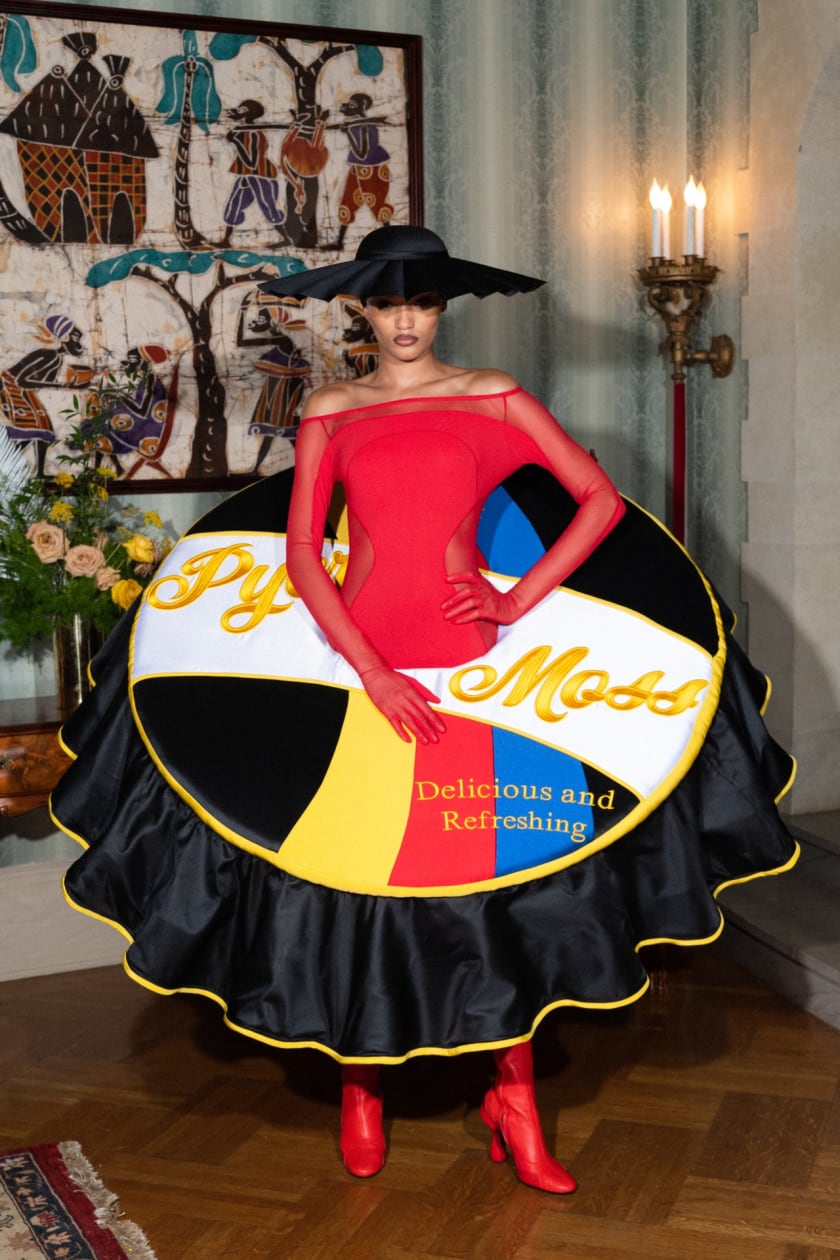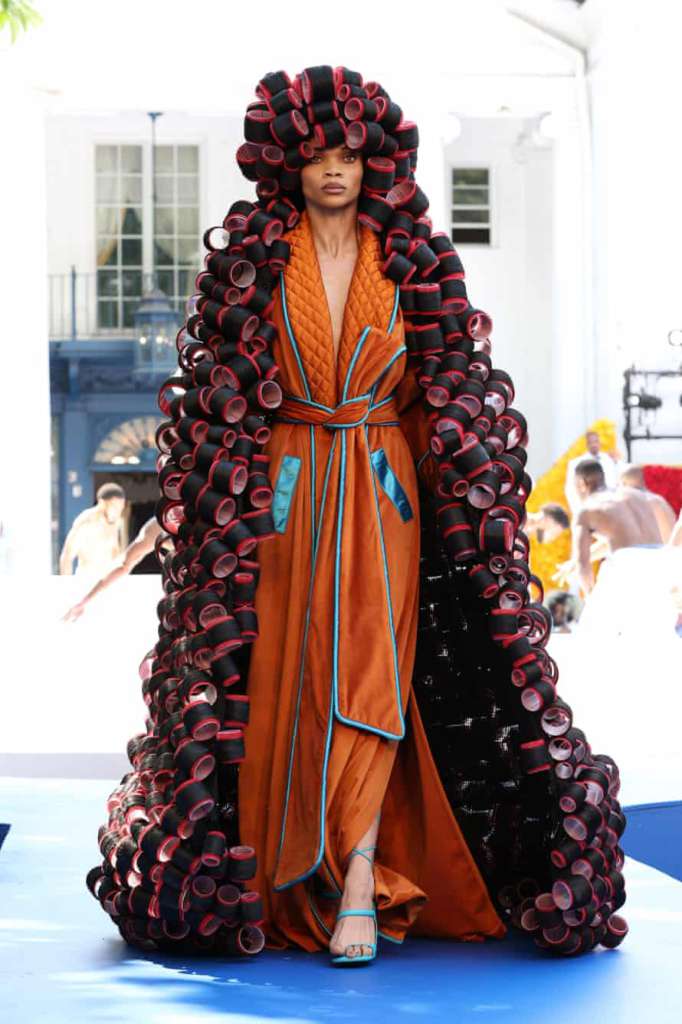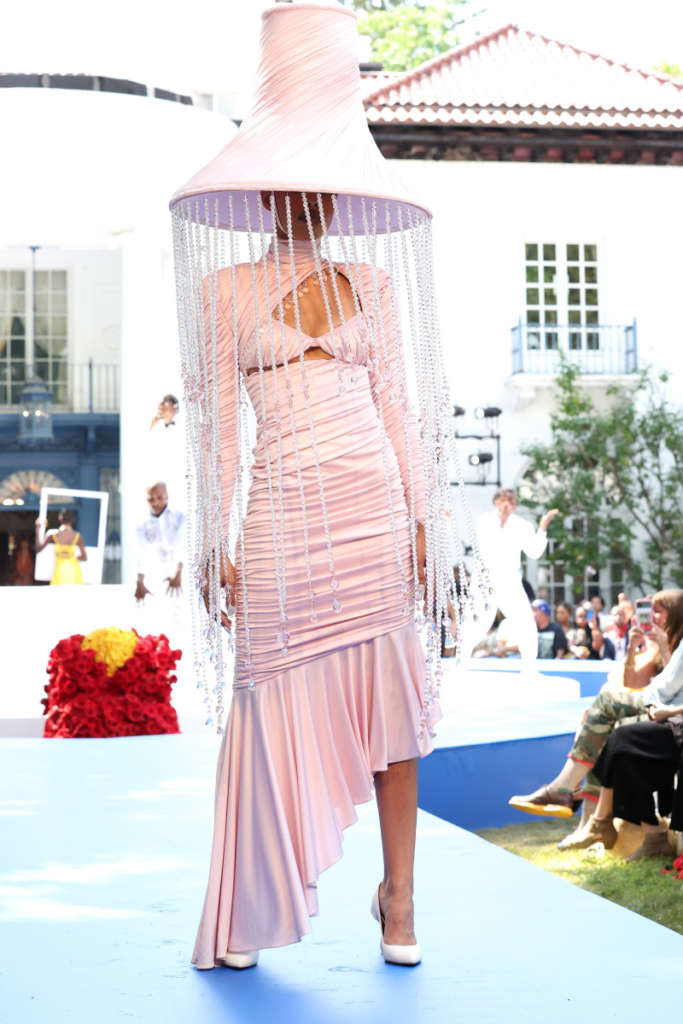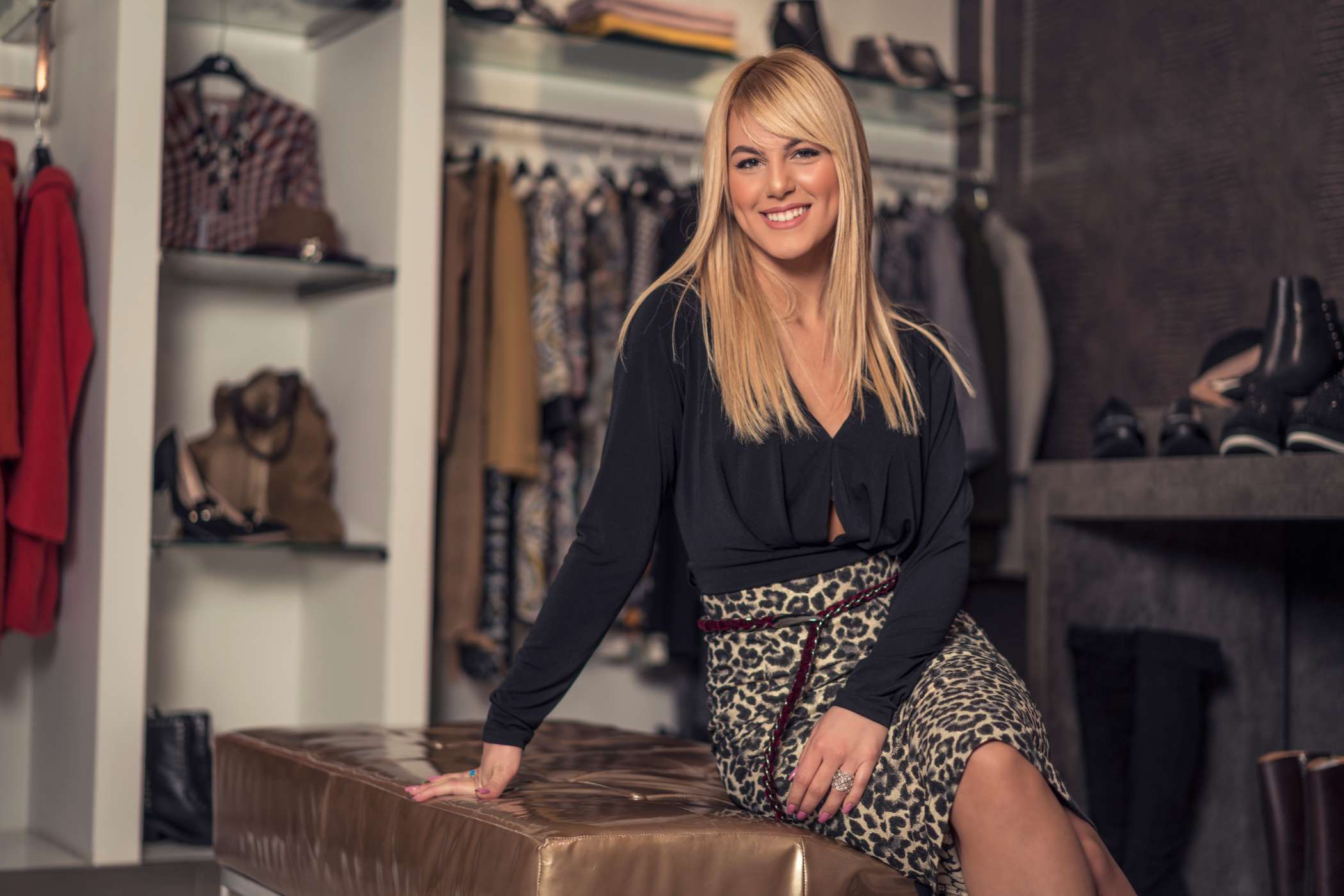How Is Pyer Moss Disrupting Haute Couture?



The creator and creative director of Pyer Moss, Kerby Jean-Raymond, became the first Black American fashion designer to do a show at Paris Haute Couture Week. The Pyer Moss Haute Couture was shown outside the famous Villa Lewaro estate in Irvington, New York. The artist led the models down a brilliant blue catwalk in larger-than-life costumes reflecting ordinary things invented by Black innovators in his long-awaited show, "Wat U Iz."
Why Was It Different?

Although fashion seldom dives into discussions about race and is frequently condemned for cases of exploitation and lack of sensitivity, Pyer Moss has long addressed subtle issues by wrapping them in beautifully draped materials, bright colors, and fantastic shapes.
The Pyer Moss Haute Couture doubled down on size and intensity, with enormous ice cream cone-patterned trousers and a bottle cap-shaped skirt. As well as a peanut butter container art piece-turned-dress and a Super Soaker-inspired jacket were all a part of the Haute Couture Fashion Week displays.
There were two unusual costumes. One was a puffer garment shaped like a black hand holding a mop. At the same time, another featured a lifesize fridge adorned with brilliantly colored fridge magnets screaming out the statement, "But who invented black trauma?"
From outlines of peanut bar jars and telephones to a precise flow of hair rollers fashioned like an 18th-century powdered wig, "Wat U Iz" was a teaching moment infused with a dash of Pop Art satire. According to one critic, it was also a demonstration of Black inventiveness, which is in scarce supply.
Criticism of the Collection
The clothing aspect of Pyer Moss Haute Couture is virtually inconsequential. That isn't to suggest they aren't worth evaluating. Nevertheless, some items, such as a large wearable peanut butter jar dedicated to George Washington Carver, a peanut pioneer, would not even slightly qualify as outerwear. Many others lacked the nuance and grace typically associated with haute couture.
Will anyone put on a white double-breasted jacket over matching pants, complete with a typewriter or cummerbund and an uplifting fringe of free leaf paper? A lilac dress shirred featuring a teardrop of flesh at the throat under a lampshade pouring crystals is not couture, as the critics argue. It's challenging to go along high fashion streets wearing a gold T-shirt minidress stitched together from dozens of glittering discs beneath a locking headgear.
It makes absolutely no sense to uphold an institution's visual integrity if it is an endorsement of racial supremacy. Jean-Raymond, on the other hand, rejected it with humor, flare, and satire. He did not reinvent couture; instead, he appropriated it and created some of his own.
Mr. Jean-Raymond's collection, which has made him a New York fashion star, was more than just a statement for his own huge goals as a designer. Fashion couture is for Sultans, queens, and the wealthy elite. We don't have a Black answer to that, said Raymond. It was a whole new definition of what it meant to be "couture."
That is why, he stated, he was willing to pay around $1.2 million to make it happen. This is why he was ready to take a chance on the fact that "this show might ruin me." This is why he is known as the current "Wat u Iz."
Mr. Jean-Raymond is now in the tribe of new fashion designers. For instance, Demna Gvasalia, who put denim and jackets on his Balenciaga couture show, and Iris van Herpen, who perceives laser slicing and 3-D printing like a sewing kit. Pyer Moss is a part of a completely fresh era of design professionals who adhere to the foundational principles of the most traditional, aristocratic type of trend while reimagining them in their dialect.

The On-the-Nose Nature of This Couture
One of the criticisms about Jean-Raymond's collection was how heavy-handed and crowded it felt due to the items overwhelming the works and the narrative being too obvious.
When you consider the words used to explain how Black people have traditionally been barred from white institutions: "forgotten," "wiped away," and "invisible," the magnitude of the objects is hilarious. He sent them down the catwalk of luxury: couture.
These Black innovations were in our faces and indisputably present, and so that was the goal. By refusing to embrace that storyline, it is also mocking the language of the victims. His ideas make couture accessible and easy, which was never the point of haute couture. And this is the problem all couture keepers have with Pyer Moss.
Conclusion
Though this sort of turmoil is uncommon in fashion, a sector that sometimes fights innovation and turbulence, it was one that many welcomed. Pyer Moss Haute Couture is the one that is both readily conceivable and all too often out of reach: one in which Black people are wholly appreciated for their numerous and vital achievements.



















